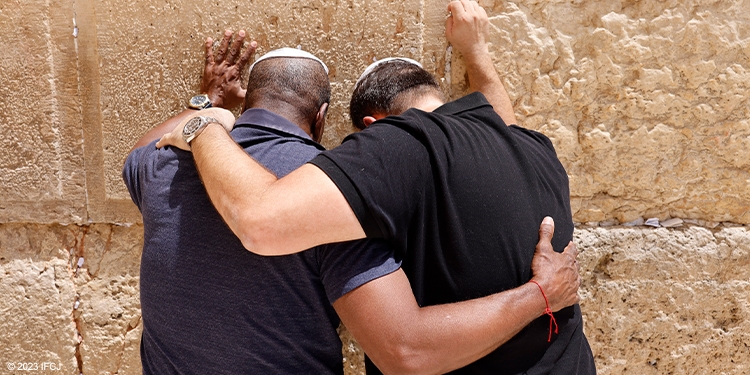Thirsting for God
Yael Eckstein | May 5, 2024

You, God, are my God,
earnestly I seek you;
I thirst for you,
my whole being longs for you,
in a dry and parched land
where there is no water. — Psalm 63:1
In honor of my father, Rabbi Yechiel Eckstein, and his lifework helping Christians understand the Jewish roots of their faith, I offer you one of his devotional teachings from the beloved Psalms.
The introductory phrase to Psalm 63 informs us that David wrote this psalm while in the Judean desert. Like many psalms, this one was composed while David was running and hiding from King Saul. In this particular psalm, David found himself hidden from Saul, but in an arid, waterless desert.
You might think that in such a place David would pray for water and God’s help, but that’s not the focus of these verses. The psalm begins: “You, God, are my God, earnestly I seek you; I thirst for you, my whole being longs for you in a dry and parched land where there is no water.”
David’s main concern was not his thirst for water. It was his thirst for God.
Thirsting for God
Today, many people reach this very same place; some call it a “mid-life crisis.” It’s that moment when you think to yourself, “There has to be more to life than this.” It’s the sentiment so many successful achievers experience when they have conquered all their goals, but still feel unfulfilled. It’s the time of life when even though we may have everything that we could ever want materially, we feel empty—or not as full as we would like—in the spiritual realm. Suddenly, all our material objects lose their allure, and we thirst for one thing and one thing only—an authentic and deep connection to God.
There is a Jewish teaching that talks about two shapes—the circle and the line. The circle represents our physical existence. This is why the earth was created round. However, if we live simply on the earthly level, we will go around and around the circle, but never get anywhere. This is the life where we wake up and go through the daily routine—and repeat it again and again and again. This is the life devoid of meaning. We age, but we don’t change. We go through time, but we don’t grow with time.
The line, however, is symbol of progression and connection. As we grow, we come closer to God. This is why human beings were created in the form of a line. Sure we may have elements that are circular, and indeed, our lives require physical cycles and routines, but our overall form, from top to bottom, is a line. This teaches us that while we live in the circle of earth, our job is to grow up and out like a line. We can, and must, live a meaningful life growing closer to what is beyond the earth—to God.
Today, take some quiet time to meditate on what gives your life meaning. Let us remember that the true thirst of our soul can only be quenched by God.
Your Turn:
What, in your life, provides value and meaning on a spiritual level?
